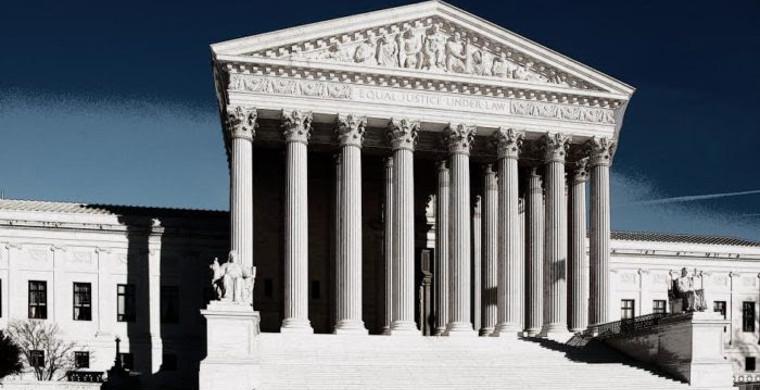SCOTUS Power Threatens Religious Liberty
By HANNAH LUTZ
https://juicyecumenism.com/2017/07/11/scotus-power-threatens-religious-liberty/
July 11, 2017
All eyes were on the Supreme Court's 7-2 ruling on Trinity Lutheran Church of Columbia, Inc. v. Comer, a major victory for religious liberty and school choice warriors. The next religious liberty case the Court will rule on is the Masterpiece Cakeshop v. Colorado Civil Rights Commission. These cases get to the heart of the First Amendment and the relationship between Church and state.
The First Amendment, freedom of religion, states, "Congress shall make no laws respecting an establishment of religion or prohibiting the free exercise thereof."
The Bill of Rights were intended to apply solely to the federal government because the states already had their own bill of rights. Federalism was thriving just as the Federalists envisioned. Thus, regarding religion, the federal government could not establish one religion on all citizens nor hinder religious communities and individuals from exercising their beliefs in the public square. However, as history progressed, the Bill of Rights was incorporated to the states through the Fourteenth Amendment, thus imposing a set of standards on all states.
It was not until the Supreme Court enshrined Thomas Jefferson's term "separation between church and state" in Everson v. Board of Education that the division carried legal weight. The argument for separation between Church and state, disputed in all religious liberty cases, is based on faulty reasoning. The phrase actually appears nowhere in the Constitution. During the Founding Era, religion was central in society. Therefore, the result of Everson v. Board of Education ended in the Court focusing on establishment versus free exercise, thus hindering religious practices, such as school prayer (in Engel v. Vitale; (1962).
Thus, with a new definition of freedom of religion, the Supreme Court has continued to be the giver or taker of religious liberty. Instead of championing federalism, the Court speaks and mandates nation-wide restrictions on religions.
For religious voters, the open seat on the Supreme Court was vital during the 2016 election. Many were pleased that President Trump appointed a justice, Neil Gorsuch, who defends and protects freedom of the religion. However, religious individuals and communities should not feel so threatened by appointees on the Court. The Founders never intended the Supreme Court to become politicized as it is today.
Interestingly, Anti-Federalist author, "Brutus", warned against judiciary power becoming supreme above other powers. Brutus believed that the Supreme Court would rule based on "the spirit of the law," in other words what the judges believe the law should be. Reading Brutus' work reveals the predicament America is in today: a mighty Supreme Court that citizens await to determine if they can practice their beliefs or not.
Alas religious communities will once again be watching the nine rulers in robes as they decide the fate of the baker, Jack Phillips in declining to bake a cake for same-sex weddings due to his religion beliefs. The Court will make a decision in the Masterpiece Cakeshop v. Colorado Civil Rights Commission case that will affect the consciousness of millions of individuals across the United States.
Brutus may have been considered extreme in his time. However, it seems his warnings about an all-powerful court legislating from the bench have come to fruition. We have no choice but to hope that "the spirit of the law" will lead the justices to decide based on the original intention of the First Amendment protecting freedom of religion.
END














